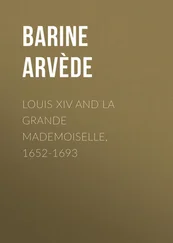Louis Saint-Simon - Memoirs of Louis XIV and His Court and of the Regency. Volume 10
Здесь есть возможность читать онлайн «Louis Saint-Simon - Memoirs of Louis XIV and His Court and of the Regency. Volume 10» — ознакомительный отрывок электронной книги совершенно бесплатно, а после прочтения отрывка купить полную версию. В некоторых случаях можно слушать аудио, скачать через торрент в формате fb2 и присутствует краткое содержание. Жанр: Биографии и Мемуары, История, foreign_edu, foreign_antique, foreign_prose, на английском языке. Описание произведения, (предисловие) а так же отзывы посетителей доступны на портале библиотеки ЛибКат.
- Название:Memoirs of Louis XIV and His Court and of the Regency. Volume 10
- Автор:
- Жанр:
- Год:неизвестен
- ISBN:нет данных
- Рейтинг книги:5 / 5. Голосов: 1
-
Избранное:Добавить в избранное
- Отзывы:
-
Ваша оценка:
- 100
- 1
- 2
- 3
- 4
- 5
Memoirs of Louis XIV and His Court and of the Regency. Volume 10: краткое содержание, описание и аннотация
Предлагаем к чтению аннотацию, описание, краткое содержание или предисловие (зависит от того, что написал сам автор книги «Memoirs of Louis XIV and His Court and of the Regency. Volume 10»). Если вы не нашли необходимую информацию о книге — напишите в комментариях, мы постараемся отыскать её.
Memoirs of Louis XIV and His Court and of the Regency. Volume 10 — читать онлайн ознакомительный отрывок
Ниже представлен текст книги, разбитый по страницам. Система сохранения места последней прочитанной страницы, позволяет с удобством читать онлайн бесплатно книгу «Memoirs of Louis XIV and His Court and of the Regency. Volume 10», без необходимости каждый раз заново искать на чём Вы остановились. Поставьте закладку, и сможете в любой момент перейти на страницу, на которой закончили чтение.
Интервал:
Закладка:
I learnt afterwards that this Madrid letter, and others that followed, came from a sham Marquis de Ruffec, that is to say, from the son of one of Madame's porters, who passed himself off as my son. He pretended that he had quarrelled with me, and wrote to Madame de Saint-Simon, begging her to intercede for him; and all this that his letters might be seen, and that he might reap substantial benefits from his imposture in the shape of money and consideration. He was a well-made fellow, had much address and effrontery, knew the Court very well, and had taken care to learn all about our family, so as to speak within limits. He was arrested at Bayonne, at the table of Dadoncourt, who commanded there, and who suddenly formed the resolution, suspecting him not to be a gentleman, upon seeing him eat olives with a fork! When in gaol he confessed who he was. He was not new at the trade and was confined some little time.
CHAPTER LXXI
But to return to M. le Duc d'Orleans.
His curiosity, joined to a false idea of firmness and courage, had early led him to try and raise the devil and make him speak. He left nothing untried, even the wildest reading, to persuade himself there was no God; and yet believed meanwhile in the devil, and hoped to see him and converse with him! This inconsistency is hard to understand, and yet is extremely common. He worked with all sorts of obscure people; and above all with Mirepoix, sublieutenant of the Black Musketeers, to find out Satan. They passed whole nights in the quarries of Vanvres and of Vaugirard uttering invocations. M. le Duc d'Orleans, however, admitted to me that he had never succeeded in hearing or seeing anything, and at last had given up this folly.
At first it was only to please Madame d'Argenton, but afterwards from curiosity, that he tried to see the present and the future in a glass of water; so he said, and he was no liar. To be false and to be a liar are not one and the same thing, though they closely resemble each other, and if he told a lie it was only when hard pressed upon some promise or some business, and in spite of himself, so as to escape from a dilemma.
Although we often spoke upon religion, to which I tried to lead him so long as I had hope of success, I never could unravel the system he had formed for himself, and I ended by becoming persuaded that he wavered unceasingly without forming any religion at all.
His passionate desire, like that of his companions in morals, was this, that it would turn out that there is no God; but he had too much enlightenment to be an atheist; who is a particular kind of fool much more rare than is thought. This enlightenment importuned him; he tried to extinguish it and could not. A mortal soul would have been to him a resource; but he could not convince himself of its existence. A God and an immortal soul, threw him into sad straits, and yet he could not blind himself to the truth of both the one and the other. I can say then this, I know of what religion he was not; nothing more. I am sure, however, that he was very ill at ease upon this point, and that if a dangerous illness had overtaken him, and he had had the time, he would have thrown himself into the hands of all the priests and all the Capuchins of the town. His great foible was to pride himself upon his impiety and to wish to surpass in that everybody else.
I recollect that one Christmas-time, at Versailles, when he accompanied the King to morning prayers and to the three midnight masses, he surprised the Court by his continued application in reading a volume he had brought with him, and which appeared to be, a prayer book. The chief femme de chambre of Madame la Duchesse d'Orleans, much attached to the family, and very free as all good old domestics are, transfixed with joy at M. le Duc d'Orleans's application to his book, complimented him upon it the next day, in the presence of others. M. le Duc d'Orleans allowed her to go on some time, and then said, "You are very silly, Madame Imbert. Do you know what I was reading? It was 'Rabelais,' that I brought with me for fear of being bored."
The effect of this reply may be imagined. The thing was too true, and was pure braggadocio; for, without comparison of the places, or of the things, the music of the chapel was much superior to that of the opera, and to all the music of Europe; and at Christmas it surpassed itself. There was nothing so magnificent as the decoration of the chapel, or the manner in which it was lighted. It was full of people; the arches of the tribune were crowded with the Court ladies, in undress, but ready for conquest. There was nothing so surprising as the beauty of the spectacle. The ears were charmed also. M. le Duc d'Orleans loved music extremely; he could compose, and had amused himself by composing a kind of little opera, La Fare writing the words, which was performed before the King. This music of the chapel, therefore, might well have occupied him in the most agreeable manner, to say nothing of the brilliant scene, without his having recourse to Rabelais. But he must needs play the impious, and the wag.
Madame la Duchesse d'Orleans was another kind of person. She was tall, and in every way majestic; her complexion, her throat, her arms, were admirable; she had a tolerable mouth, with beautiful teeth, somewhat long; and cheeks too broad, and too hanging, which interfered with, but did not spoil, her beauty. What disfigured her most was her eyebrows, which were, as it were, peeled and red, with very little hair; she had, however, fine eyelashes, and well-set chestnut-coloured hair. Without being hump-backed or deformed, she had one side larger than the other, and walked awry. This defect in her figure indicated another, which was more troublesome in society, and which inconvenienced herself. She had a good deal of intellect, and spoke with much ability. She said all she wished, and often conveyed her meaning to you without directly expressing it; saying, as it were, what she did not say. Her utterance was, however, slow and embarrassed, so that unaccustomed ears with difficulty followed her.
Every kind of decency and decorum centred themselves in her, and the most exquisite pride was there upon its throne. Astonishment will be felt at what I am going to say, and yet, however, nothing is more strictly true: it is, that at the bottom of her soul she believed that she, bastard of the King, had much honoured M. d'Orleans in marrying him! M. le Duc d'Orleans often laughed at her pride, called her Madame Lucifer, in speaking to her, and she admitted that the name did not displease her. She always received his advances with coldness, and a sort of superiority of greatness. She was a princess to the backbone, at all hours, and in all places. Yet, at the same time, her timidity was extreme. The King could have made her feel ill with a single severe look; and Madame de Maintenon could have done likewise, perhaps. At all events, Madame la Duchesse d'Orleans trembled before her; and upon the most commonplace matters never replied to either him or her without hesitation, fear printed on her face.
M. le Duc and Madame la Duchesse d'Orleans lived an idle, languishing, shameful, indecent, and despised life, abandoned by all the Court. This, I felt, was one of the first things that must be remedied. Accordingly, I induced Madame la Duchesse d'Orleans to make an effort to attract people to her table. She did so, persevering against the coldness and aversion she met with, and in time succeeded in drawing a tolerably numerous company to her dinners. They were of exquisite quality, and people soon got over their first hesitation, when they found everything orderly, free, and unobjectionable. At these dinners, M. d'Orleans kept within bounds, not only in his discourse, but in his behaviour. But oftentimes his ennui led him to Paris, to join in supper parties and debauchery. Madame la Duchesse d'Orleans tried to draw him from these pleasures by arranging small parties at her pretty little villa, l'Etoile (in the park of Versailles), which the King had given to her, and which she had furnished in the most delightful manner. She loved good cheer, the guests loved it also, and at table she was altogether another person —free, gay, exciting, charming. M. le Duc d'Orleans cared for nothing but noise, and as he threw off all restraint at these parties, there was much difficulty in selecting guests, for the ears of many people would have been much confused at his loose talk, and their eyes much astonished to see him get drunk at the very commencement of the repast, in the midst of those who thought only of amusing and recreating themselves in a decent manner, and who never approached intoxication.
Читать дальшеИнтервал:
Закладка:
Похожие книги на «Memoirs of Louis XIV and His Court and of the Regency. Volume 10»
Представляем Вашему вниманию похожие книги на «Memoirs of Louis XIV and His Court and of the Regency. Volume 10» списком для выбора. Мы отобрали схожую по названию и смыслу литературу в надежде предоставить читателям больше вариантов отыскать новые, интересные, ещё непрочитанные произведения.
Обсуждение, отзывы о книге «Memoirs of Louis XIV and His Court and of the Regency. Volume 10» и просто собственные мнения читателей. Оставьте ваши комментарии, напишите, что Вы думаете о произведении, его смысле или главных героях. Укажите что конкретно понравилось, а что нет, и почему Вы так считаете.












